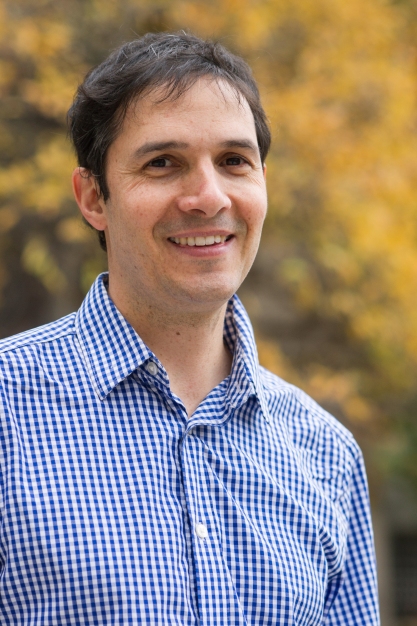
We’re running a new interview series about our incoming class for the “Virtue & Happiness” 2016 Summer Seminar. Today’s post features Santiago Mejia, who happens to also be our graduate assistant. He’s a PhD student at the Department of Philosophy at the University of Chicago. In Fall 2016, he will be an Andrew W. Mellon Foundation postdoctoral fellow at Occidental College. There, he intends to explore ways to apply research in moral psychology to issues in social justice and business ethics.
Valerie Wallace: Where are you from?
Santiago Mejia: I come from the Andean highlands. I was born and raised in Bogotá, Colombia. As an immigrant to the US, this explains some of my greatest strengths and weaknesses.
VW: What are your research areas? Why?
SM: The overarching theme of my research is moral development and self-transformation. How do we make ourselves into better human beings? How can we transform ourselves so that we live a life worth living? I investigate these issues within virtue ethics, but I draw on insights from clinical psychology, social psychology, and cognitive science. I believe that the empirical findings I consider help me offer a textured account of ethical development and moral education that is both conceptually rigorous and empirically informed. During the last few years I have focused on examining, specifically, the role that self-examination and self-knowledge play in the development of virtue.
VW: Why these interests?
SM: I find the general topic fascinating. And I also think that it is a very important one. I take it that the question “How should one live?” is at the heart of the human existence. And my research is meant to help us understand better what the question is asking and how we are meant to respond to it, not just theoretically but also, and perhaps more importantly, practically.
VW: What are you most looking forward to about this summer’s Virtue & Happiness seminar?
SM: I am looking forward to work in a multidisciplinary environment where issues within moral philosophy area approached in a variety of ways. I love to work collaboratively and am eager to meet colleagues with whom to explore together areas where our research intersects.
VW: What are your non-academic interests?
SM: I play squash and video games, even though I am no good at either.